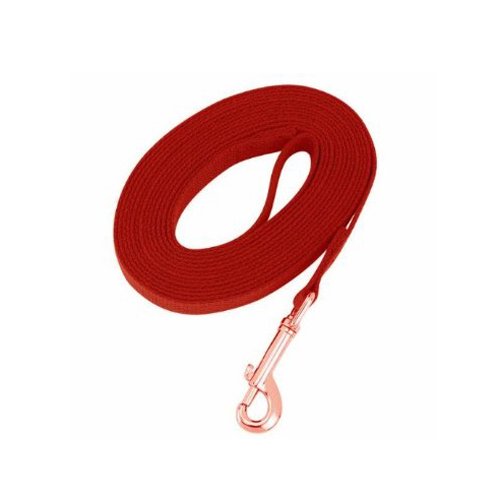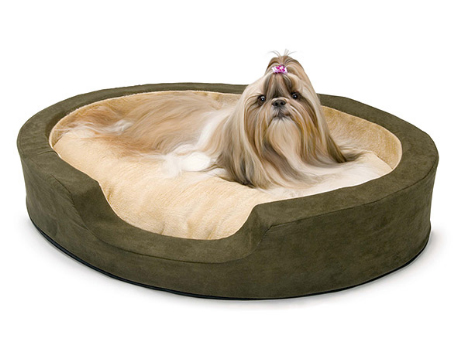
Dogs are highly social animals. Wild canines live in complex family groups where each individual plays a role in the pack. This social order – knowing who ranks where – allows the pack to maintain a cohesive way of life for everything from hunting to raising puppies.
Domesticated dogs may be far removed from their wild ancestors, but the need for social order remains the same. This applies to everyone in the dog’s family unit – humans (including children) as well as other dogs. A pecking order will start to develop from the moment the dog is introduced into your home, so it’s important to establish good habits from the very beginning.
 Establishing yourself as your dog’s leader is very important for you, your dog, and any other people or pets that your dog will encounter throughout his lifetime. Some breeds are more prone to dominant behavior which makes this task even more crucial, but all dogs - regardless of size or disposition - will benefit from having effective leadership in their pack.
Establishing yourself as your dog’s leader is very important for you, your dog, and any other people or pets that your dog will encounter throughout his lifetime. Some breeds are more prone to dominant behavior which makes this task even more crucial, but all dogs - regardless of size or disposition - will benefit from having effective leadership in their pack.
Being the leader at home will help to develop good behavior. If your dog respects you as his leader, you’ll be able to establish boundaries (for example, staying off furniture or not stealing food ) and enforce them throughout your life together. If your dog sees himself as the leader, then he has no incentive to follow your rules or obey your commands.
Providing good, kind leadership will also benefit your dog. Remember that in the wild, very few canines are leaders – that’s a simple law of social creatures and statistics. Most are followers, and are quite content to live their lives following the strong leadership of the alpha dog. Resist the urge to assign human thought patterns to animals – it is not cruel to provide good leadership for your dog, nor are you breaking his spirit. Dogs need an established social structure; the lack of a structure can be very stressful for the dog as he tries to figure out where he fits in your family.
Your dog will encounter many strangers throughout his lifetime, both human and canine. If you are respected and trusted as the leader, he will look to you for guidance on how to deal with the “intruder”. Welcoming the new individual as a friend will instruct your dog to do the same, while uncertainty will cause your dog to be on his guard. If your dog doesn’t look to you as his leader, he will make his own decisions about whether the stranger is a friend or an enemy. Depending on the aggressiveness (or insecurity) of the dog, this could potentially create a dangerous situation for the visitor.
 It is important to understand the difference between positive leadership and fear-based leadership. Your dog doesn’t have to be afraid of you in order to respect your position of authority. Under no circumstances should you ever lose your temper or become violent with your dog – this will ultimately work against your goal of becoming an effective pack leader.
It is important to understand the difference between positive leadership and fear-based leadership. Your dog doesn’t have to be afraid of you in order to respect your position of authority. Under no circumstances should you ever lose your temper or become violent with your dog – this will ultimately work against your goal of becoming an effective pack leader.
There is no fool-proof, step-by-step method of becoming your dog’s leader. Each situation is unique, and you may find that certain tactics work better than others. The important thing is to consider the world from your dog’s eyes, and take advantage of ways in which you can provide the leadership, direction, and authority that he needs in order to live a healthy life. The following are principles to consider when establishing your authority.
1. Everything comes from you, with your permission
Everything that is important to your dog – his food, toys, your attention, petting, etc. – comes from you. This, on its own, puts you in a position of power. The key here is to enforce that these things come from you when you decide to give them, not when he demands them.
One example where this is easy to enforce is around mealtime. When you are filling your dog’s bowl with food, make him sit off to the side instead of butting in and slobbering excitedly. When you are ready and he is calm, allow him to get up and eat the food. This may sound daunting at first, but you have the opportunity to practice once or twice each day. The goal is to communicate the message that he gets dinner on your terms, not his.
Another example is petting. Does your dog come up to you and shove his nose in your lap, asking to be petted? As endearing as this may be, consider this scenario from your dog’s point of view. He wants your attention, so he boldly walks up to you and demands that you pay him attention now. Giving into that enforces his position as the leader, not yours. Instead, ask your dog to do something in return before petting him. Have him sit, lie down, or perform another trick in order to “earn” your attention, not simply because he declared it to be your duty.
2. Your rules are firm and unchanging
Good leaders establish clear boundaries and stick to them. If laws changed on a daily basis, would you become frustrated with the changing requirements? Would you respect your elected leaders, or accuse them of being flaky? The same applies to the rules that you establish with your dog. Whatever rules you choose – no dogs allowed on furniture, no jumping on people, no digging in the yard, etc. – they must be consistent and firm. A dog cannot understand why it might be okay to jump on you but not your young neighbor, or why he could climb on the couch yesterday but not today. Boundaries are important – again, you are not quashing your dog’s spirit, but rather establishing clear bounds in which his behavior is accepted and encouraged.
3. You are a kind and trustworthy leader
As mentioned before, these leadership tactics are not meant to be heavy-handed. A fearful dog is more likely to bite or otherwise act aggressively, which is not the mark of a healthy, well-adjusted dog. Be the leader that your dog can trust to guide him safely throughout life - whether it’s a walk around the block or a trip to the vet, he should be able to relax under your authority.

We invite dogs into our lives for a number of reasons: for their loyalty as companions, for their usefulness as service animals, and so on. Even when you are frustrated with bad behavior, keep your cool and stick to these principles. Don’t subject you or your dog to a constant struggle for leadership. Your hard work and dedication toward becoming a good leader for your dog will be rewarded with loyalty and affection, leading to a happy life for both you and your dog.
 Small Dog Cross Breed As A Pet
Our dog, Mika , is quite a mix of breeds.
Small Dog Cross Breed As A Pet
Our dog, Mika , is quite a mix of breeds.
 Dog Leash Training
A pet owner should always ta
Dog Leash Training
A pet owner should always ta
 Do You Know Whats In Your Pet Food? Are You Sure?
Owners of dogs and cats who
Do You Know Whats In Your Pet Food? Are You Sure?
Owners of dogs and cats who
 The Particular Way To Select The Perfect Dog Bed
A very orthopedic bed s not for every single dogs. When you
The Particular Way To Select The Perfect Dog Bed
A very orthopedic bed s not for every single dogs. When you
 The Five Laws of Choosing Toys for Blind Dogs
Finding good toys for blind
The Five Laws of Choosing Toys for Blind Dogs
Finding good toys for blind
Copyright © 2005-2016 Pet Information All Rights Reserved
Contact us: www162date@outlook.com